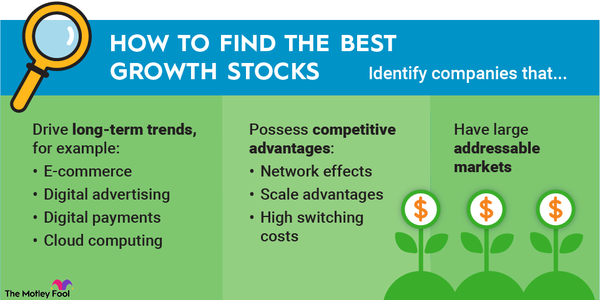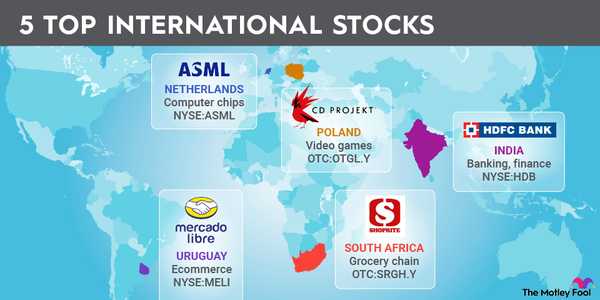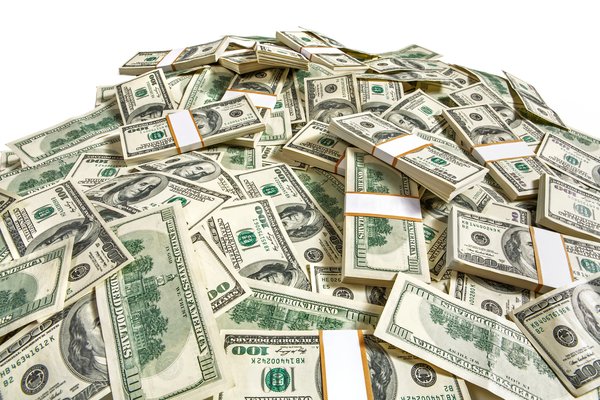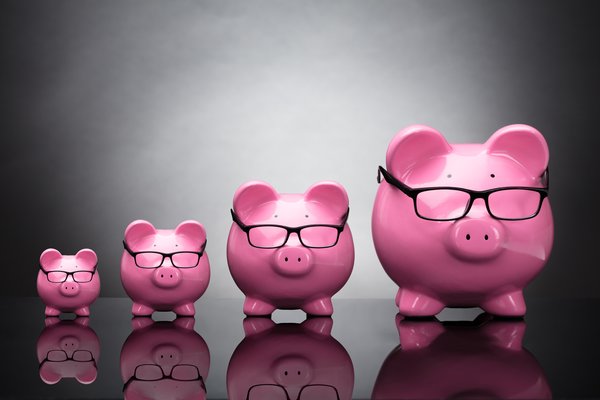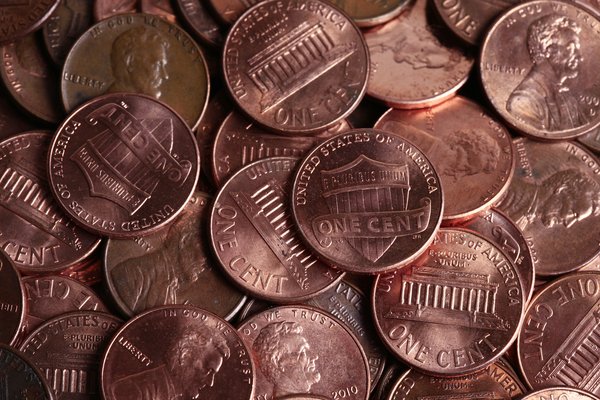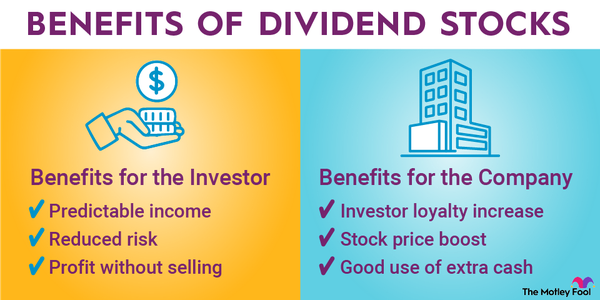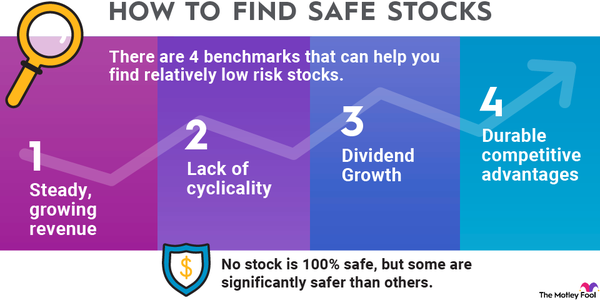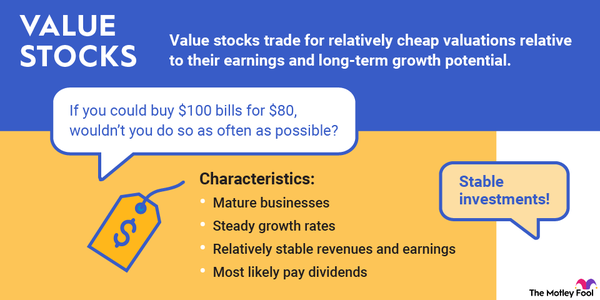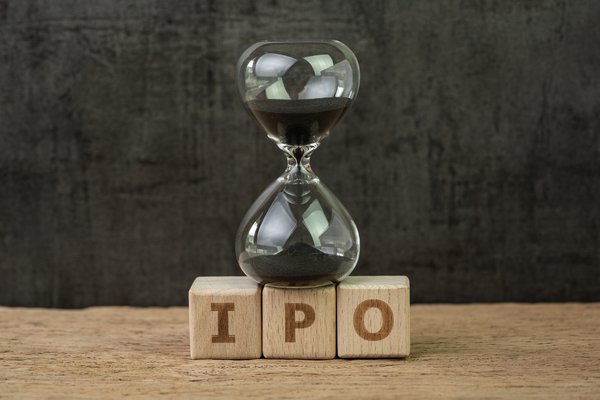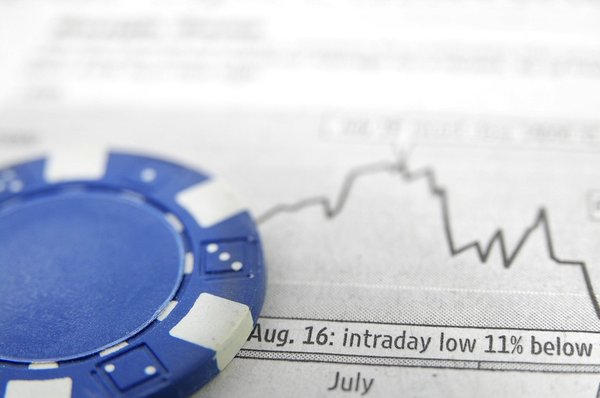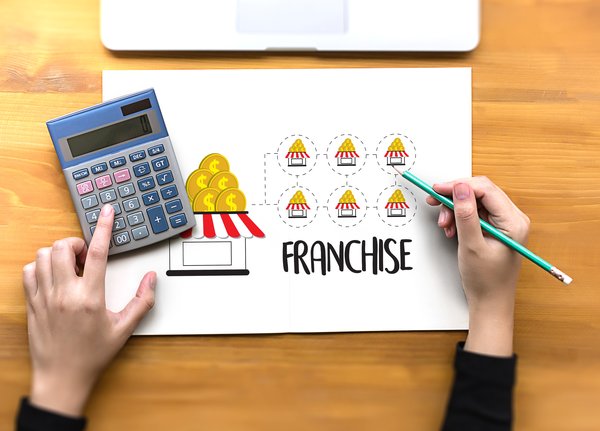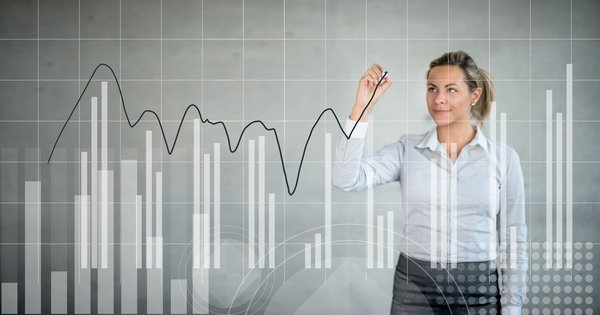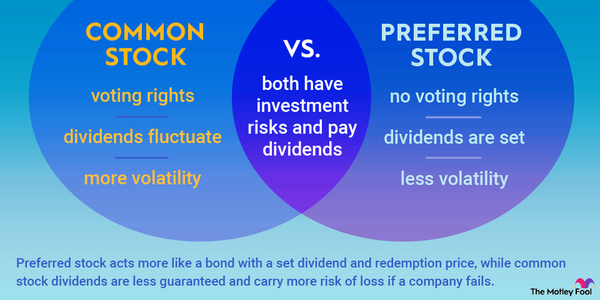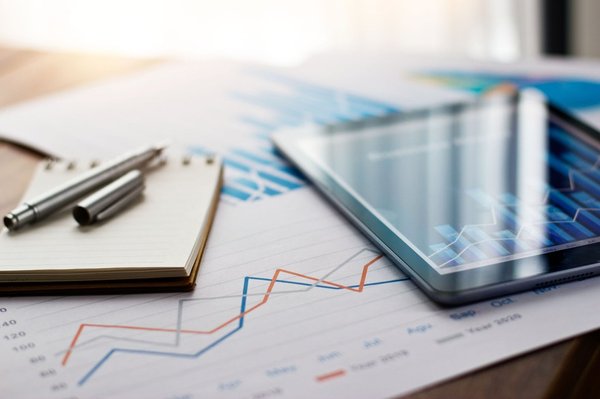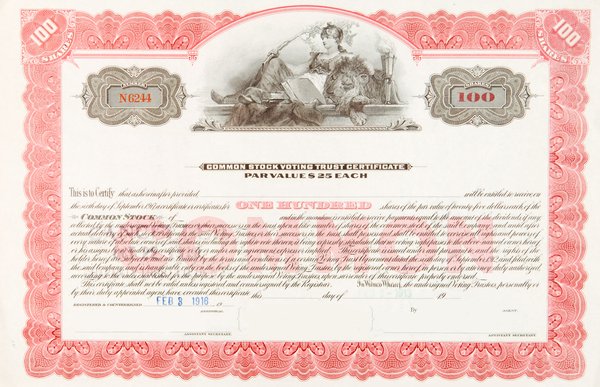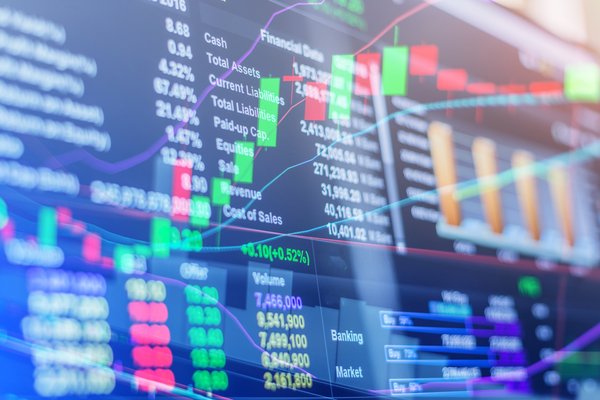The economy moves in a cycle with four basic stages:
- Expansion: A period of sustained growth.
- Peak: A time of slowing growth.
- Contraction: A period of economic decline, also called a recession.
- Trough: A transitional time when the economy stops declining and begins to recover.
This cycle can have a significant impact on industries tied to economic growth. Stocks in those sectors tend to be very cyclical. Corporate profits typically rise during an expansion and contract during a recession, taking the price of cyclical stocks with them. This cyclicality contrasts with other types of stocks that tend to generate steady profits in good times or bad, making them relatively recession-proof.

The economy has been in an expansion phase for the past several years. This continued growth has come even though the Federal Reserve has kept interest rates high to tame inflation. While higher rates have slowed the economy, it's not yet clear whether it's nearing a peak or just taking a breather. However, the uncertainty has caused a lot of volatility in cyclical stocks.
Here’s what you should know about investing in cyclical stocks.
What is a cyclical stock?
What is a cyclical stock?
A cyclical stock is one whose underlying business generally follows the economic cycle of expansion and recession. Cyclical businesses perform well during economic expansions but typically experience significantly declining sales and profits during recessions and other challenging economic times.
Cyclical stocks tend to move up and down in value alongside the market.
Best cyclical stocks to buy in 2025
Best cyclical stocks to buy in 2025
While the economy has been expanding since 2020, it seemed to be nearing a cyclical peak in 2022 when the Federal Reserve started raising interest rates to curb inflation. However, the economy has proven to be more resilient than many expected and still hasn't experienced a recession as of early 2025. Nonetheless, the rise in interest rates has still had an effect on cyclical stocks.
Despite this impact, some cyclical stocks have longer-term tailwinds that should enable them to thrive even if economic headwinds grow stronger. With that in mind, here are four top cyclical stocks that should still thrive in the coming year:
1. The Walt Disney Company
Entertainment giant Disney (DIS -2.52%) has some cyclicality to its business. Consumers reduce their spending on discretionary purchases, such as vacations during a recession. That affects Disney’s experiences (parks, cruises, and vacation clubs) and other consumer products businesses.
However, despite concerns about the economy, Disney is seeing resilient demand for the experiences it offers. In its fiscal fourth quarter of 2024, revenue for U.S. parks and experiences increased by 3%, while consumer product revenue rose by 1%. Meanwhile, another entertainment offering, Disney+, continues to add subscribers as more people switch to streaming.
Disney could buck the economic cycle by continuing to boost its revenue and earnings in the coming years. The company expects to deliver high-single-digit growth in its adjusted earnings per share in its 2025 fiscal year. Meanwhile, Disney is anticipating double-digit earnings growth for fiscal 2026 and 2027.
2. Airbnb
Airbnb (ABNB -1.6%) is a leading online vacation rental platform. While demand for vacations tends to decline during a recession, Airbnb's platform should prove to be very resilient. "Airbnb is a fundamentally stronger company today than it was several years ago," the company wrote in its fourth-quarter shareholder letter. "We're continuing to build on this momentum in 2025, executing a multiyear strategy to perfect the core service, accelerate growth in global markets, and launch and scale new offerings."
The company wants its app to be a lot like Amazon (AMZN -2.58%). It aims to be the go-to source for travel and living needs. The company intends to build several new businesses in the coming years. It plans to start by investing in experiences that enhance user stays, such as tours led by locals. Airbnb also anticipates expanding into other new areas, like partnering with companies like grocery stores and cleaning services. The company's expansion strategy should enable it to continue growing in the future, even if there's a cyclical downturn in travel.
3. EPR Properties
EPR Properties (EPR -0.45%) is a real estate investment trust (REIT) focused on owning experiential real estate such as movie theaters, ski resorts, eat-and-play locations, and other attractions. Demand for these experiences tends to decline during a recession. However, that won't have as much of an impact on EPR Properties due to its business model.
The REIT leases its properties to operating tenants under long-term triple net (NNN) agreements. Those leases supply it with a very stable rental income. It pays out a meaningful portion of its steady cash flow via its monthly dividend. EPR reinvests the rest into buying additional income-producing experiential properties. Those investments help grow its rental income, which should enable the REIT to continue increasing its dividend even during a recession.
4. Nucor
Steel producer Nucor (NUE -1.17%) tends to be highly cyclical since demand for steel ebbs and flows with the economy. When the economy is expanding, companies use more steel to construct buildings, cars, and other industrial goods. However, demand for steel tends to decline during a recession.
While Nucor could eventually see a slowdown in steel demand, it's benefiting from an increase in infrastructure spending. The company's business also has proven more resilient than others in the steel sector over the years, as shown by its dividend. As of late 2024, Nucor had paid 207 consecutive quarterly dividends. It has increased its dividend payment for 52 straight years -- every single year since it first started paying dividends in 1973, qualifying it as a Dividend King, or a company with 50 or more years of annual dividend increases.
Examples
Examples of cyclical industries
It's not practical to list every cyclical industry. However, to give you a good idea of some of the sectors prone to cyclicality, here are eight prominent and easy-to-understand examples:
- Airlines: During good economic times, individuals and businesses tend to be more willing and able to spend money on airline tickets than during lean periods.
- Hotels: Like airlines, hotels depend on individuals and businesses spending money on travel.
- Retail: During economic contractions, people tend to spend less on discretionary retail goods. However, retailers primarily selling things that people need are not as cyclical, especially when they prioritize offering discounts. Walmart (WMT -2.95%) can be considered countercyclical since the company's sales often increase during tough times.
- Restaurants: During economic downturns, people eat at home more often than they do during prosperous times, and restaurant stocks often suffer as a result.
- Automakers: Consumers tend to hang on to their vehicles longer when recessions hit and are more inclined to buy new vehicles in prosperous times, so automaker stocks tend to be quite cyclical.
- Technology: Most (but not all) tech stocks are cyclical. Individuals and businesses are less inclined to spend money on the latest technologies and electronic devices during recessions.
- Banks: Bank stocks are cyclical. In a recession, the profitability of banks often declines. Recessions reduce demand for banking products, including mortgages, auto loans, and credit cards, and more consumers who already have loans struggle to pay their debts. In addition, interest rates usually fall during recessions, causing bank profit margins to contract.
- Manufacturing: In tough times, companies that manufacture physical products generally experience plunging demand as individuals and businesses spend less on pretty much everything.
Many of the sectors mentioned above, such as automotive and retail, are consumer-facing industries and, therefore, part of the consumer cyclical sector. Consumer cyclicals are consumer discretionary goods that, unlike consumer staples, aren't strictly necessary purchases.
Consumer cyclicals are divided into two subcategories: durable and non-durable. Durable cyclicals include physical consumer goods that have long useful lives (e.g., vehicles). Non-durable cyclicals have shorter useful lives or are consumed quickly (e.g., clothing and prepared foods).
Each recession is different. An economic downturn might not affect all cyclical stocks in the same way. For example, while technology stocks tend to be cyclical, heavy investments in new technologies like artificial intelligence (AI) could continue driving growth for this sector, even if there's a recession in the next couple of years.
Examples of non-cyclical industries
Some types of businesses aren't affected much by economic cycles. The stocks of these companies are non-cyclical and are known as defensive stocks or recession-proof investments. They tend to perform similarly during both economic contractions and expansions.
Here are a few of the most prominent non-cyclical industries:
- Non-discretionary retail are companies selling things that people need, and they tend to be rather resilient in nature. In addition to big-box retailers such as Walmart, drugstores and grocery stores fit into this category.
- Utilities stocks tend to be highly defensive since consumers (for the most part) continue to pay their electric and water bills even during the deepest recessions.
- Real estate is another sector that can be considered defensive, although the degree of defensiveness of a stock depends on the nature of the company's properties. For example, REITs that focus on necessity retail or medical office buildings usually perform better in difficult economies than those that invest in hotels. However, the industry does have some cyclicality related to interest rates. Rising rates tend to weigh on real estate values while falling rates benefit the sector.
That said, the nature of a recession or downturn can have surprising effects on normally defensive holdings. For example, a severe recession can weigh on even the most defensive stocks as investors pivot to even lower-risk investments such as bonds or cash until the dust settles.
Examples of cyclical and defensive stocks
To give you some concrete ideas of the types of stocks we're talking about, here are some common cyclical and defensive stocks:
Cyclical stocks
- JPMorgan Chase (JPM -1.47%)
- Apple (AAPL -3.82%)
- General Motors (GM -0.57%)
- Boeing (BA 0.78%)
- Texas Roadhouse (TXRH -1.5%)
Defensive stocks
- Dominion Energy (D -1.19%)
- Costco (COST -0.78%)
- Equity Residential (EQR 0.13%)
- General Mills (GIS -2.28%)
- Coca-Cola (KO -0.19%)
To be clear, none of the companies on these lists are perfectly cyclical or perfectly defensive. Depending on the circumstances of a specific recession, some of the cyclical names could do relatively well. Meanwhile, the defensive stocks could see profits significantly decline. However, these are still good examples of stocks that generally behave either cyclically or defensively.
Related investing topics
When should you buy cyclical stocks?
In a perfect world, the best investment strategy would be to buy cyclical stocks at the start of an economic expansion and to sell them just before a recession. But trying to predict the timing of a future recession or expansion is a losing battle.
Owning a combination of cyclical and defensive stocks in your portfolio is smarter. You'll be well-positioned to prosper when the economy is growing but also will have some downside protection when the economy contracts.









